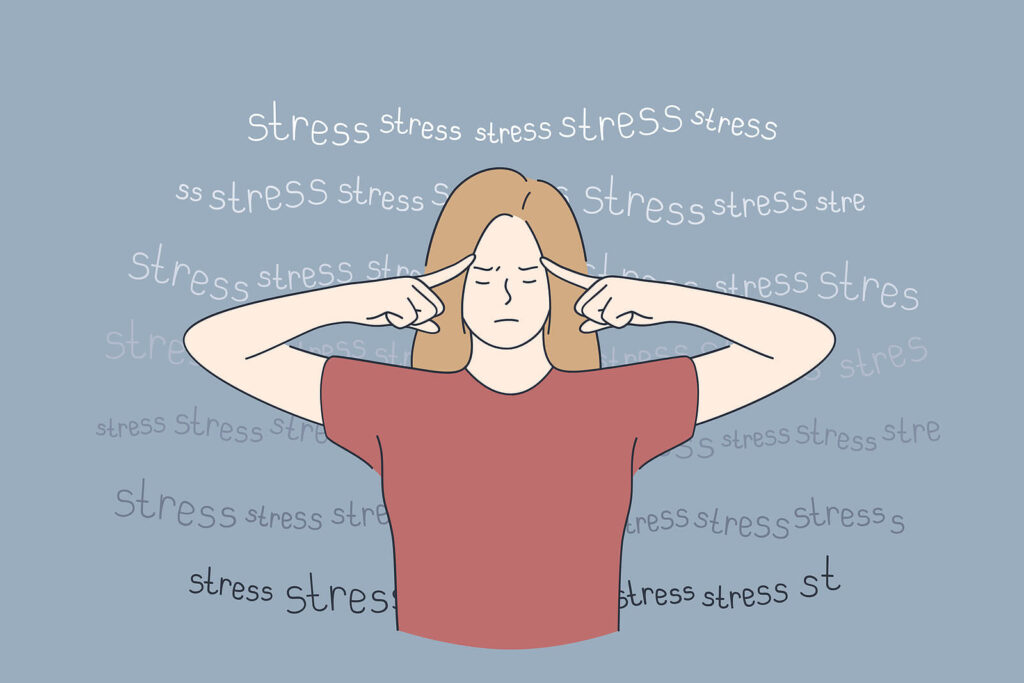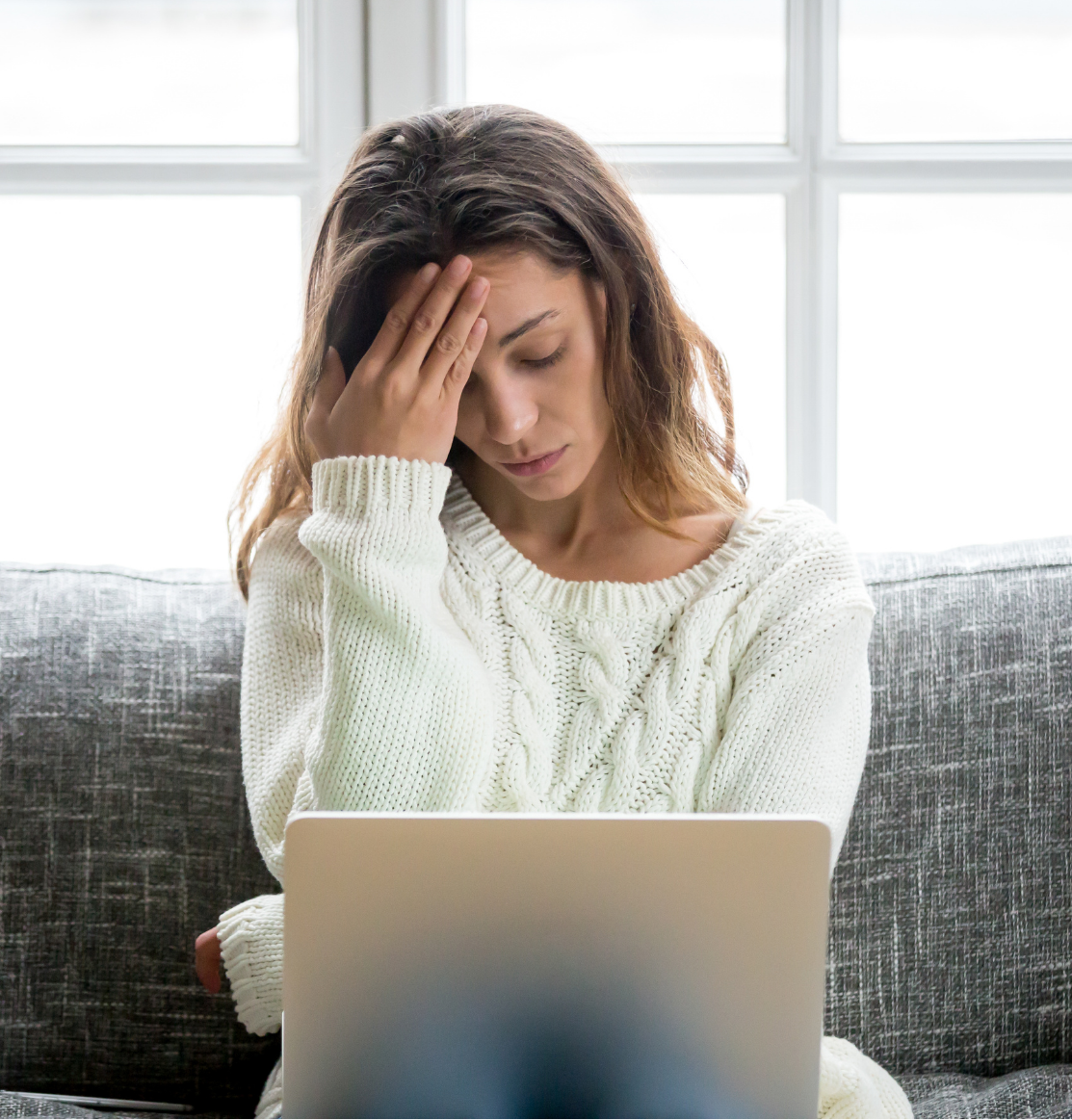Let’s get real: the past two years have been rough. Internet searches for anxiety have reached record highs since the start of the pandemic.

We are all feeling the stress of the unknowns and what-ifs and contentious different beliefs. But what if your anxiety is more than that?
Anxiety disorders are the most common type of mental health diagnosis, according to the National Institute of Mental Health. Anxiety disorders can interfere with daily life activities such as job or school performance, social interactions, sleep quality, and appetite.
Signs and Symptoms of Generalized Anxiety Disorder
Generalized Anxiety Disorder is characterized by the inability to control spiraling thoughts of intense worry and fear. It’s conditional on having symptoms on more days than not for at least six months. Women are twice as likely to have it.
Anxiety develops gradually over time and can begin at any point in life; typically symptoms are present by the teenage years. Most people who receive an anxiety diagnosis in adulthood can look back and identify ways anxiety has been a part of their life since they can remember.
Signs and symptoms of Generalized Anxiety Disorder may include excessive worry about everyday things, difficulty controlling the worry even when you realize it is excessive, feeling restless/difficulty sitting still, difficulty concentrating, feeling tired more often than not, irritability and anger, feeling “on edge,” racing thoughts, difficulty sleeping, psychosomatic symptoms including stomach aches, muscle tension, racing heart, sweating, and other unexplained pains.

Symptoms may get better or worse at different times, but the worry is typically always there.
Causes & Treatment
Anxiety can run in families and be caused by incorrect amounts of certain chemicals in the brain. It is unclear why some family members have anxiety while others do not. Environmental factors and personality characteristics also play a role.
Treatment options include psychotherapy, medication, or a combination of the two. Cognitive Behavioral Therapy has been proven to be highly effective for anxiety, which identifies and shifts a person’s thoughts and how they respond to stressful situations. Medication that is helpful includes selective serotonin reuptake inhibitors (such as Zoloft or Prozac), serotonin-norepinephrine reuptake inhibitors (such as Effexor or Cymbalta), and benzodiazepines (such as Xanax or Valium). Each of these medications works differently, so it’s important to be open with your doctor about your history and what anxiety symptoms you are experiencing. Medication for anxiety is highly effective and can greatly improve a person’s quality of life if appropriate for the level of anxiety they are experiencing. For more information on medication consult with your doctor.
As with any difficult symptom, making sure you are getting enough sleep, eating well, and exercising can increase your chances of being successful in managing anxiety.
What Now?

Even if you do not qualify for a diagnosis of Generalized Anxiety Disorder, if you feel that your anxiety is interfering with your day-to-day life you may benefit from talking to a therapist. Read about our therapists here and see if they might be a good fit.
Begin Anxiety Treatment in American Fork, UT
Treating GAD is about getting those skyrocketed levels of anxiety back down to manageable levels. You do not have to white-knuckle your way through life. Our team of caring therapists would be happy to offer support. You can start your therapy journey with The Family Therapy Clinic by following these simple steps:
- Contact us today to set up a free 15-minute consultation
- Meet with a caring therapist
- See how anxiety treatment can help you take the next step towards feeling better.
OTHER SERVICES OFFERED WITH THE FAMILY THERAPY CLINIC IN UTAH:
At The Family Therapy Clinic, we provide comprehensive mental health services designed to address your unique needs in addition to anxiety treatment. Whether your teenager requires support for anxiety or depression or you’re thinking about marriage counseling, our specialized therapists offer tailored therapy. Understanding life’s unpredictability, our experts also focus on adult anxiety, depression, post-divorce therapy, faith deconstruction, and OCD therapy, ensuring a holistic approach to mental wellness across different life stages.

+ show Comments
- Hide Comments
add a comment